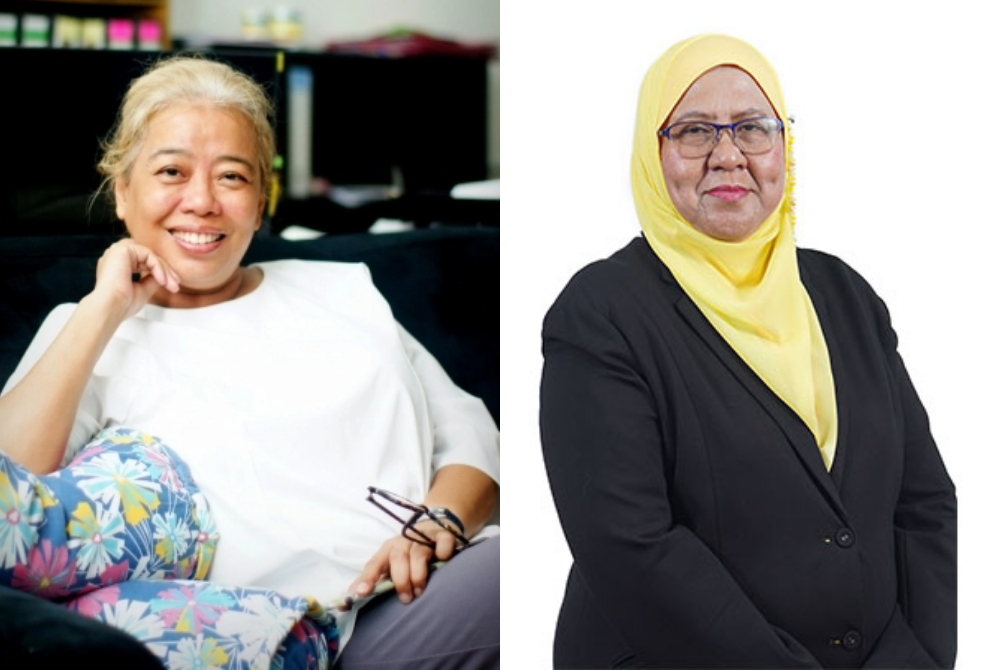Children should not be having children, experts weigh on child marriage

SHAH ALAM - The government has no intentions to ban child marriage in the country despite declaring its commitment to curb the issue via the implementation of the National Strategic Plan in Handling the Causes of Child Marriages.
Many have voiced out against this, arguing that the outright refusal to ban child marriage would only lead to the “normalisation” of child exploitation.
Child rights activist Dr Hartini Zainudin dubbed child marriages in Malaysia as the “most insidious and appalling practices” and should be condemned.
“We’re in 2022, everyone should stop talking and pointing to what your mother and grandmother and grandparents did when they were 14.
“There are choices now for children both girls and boys. Girls do not have to marry adults, with or without consent,” she told Sinar Daily.
The Yayasan Chow Kit co-founder said children should be in school and pursuing their passion, what they are interested in - in general, just other options that do not involve tying the knot.
She said children should not be vessels for men or parents who think the only way to save them is to marry them away.
“They think the only way to save them is by marrying them off to ward off maksiat or immoral behaviour or get them out of poverty,” she added.
Hartini also said that marrying children at a young age for money in hopes of getting them out of financial instability can be described as trafficking.
Trafficking, she said, was a crime and many should be made aware of this.
She added that there was no need to marry off the children for dowry just for the sake of culture and customs.
“Why would Putrajaya agree to this? Customs? Culture? Stop.
“There is honour and tradition, and there is also the best interest of the child.
“Futures are destroyed by ignorance and a lack of education,” she said.
Hartini said studies have not only shown that marriage at a young age was harmful to the person’s mental state but also affects their development into adulthood.
“Not only is marriage at young age dangerous the child or children per say but it is also harmful to their own children as they are not usually ready or up for the challenges in becoming young parents.
“Children should not be having children.
“Then there’s the burden of being young parents, financial stability and work, most child marriage result in girls and/or boys dropping out of school so they do not have any job qualifications in the future,” she added.
Meanwhile, Human Rights Commission of Malaysia (Suhakam) Child Commissioner Prof Datuk Noor Aziah said it was easier than done when it came to banning child marriage.
She said although many, including herself, would love to see child marriage banned, there were many hindrances as the country consisted of a multicultural and multi-religious structure.
“That is the reason why the government introduced The Strategic Plan in Curbing Child Marriage but it
“I will continue to monitor incidences of child marriage,” she told Sinar Daily.
Noor Aziah said based on her research with the United Nations Children's Fund titled Child Marriage in Malaysia, among the factors of child marriage were gender discrimination; poor economic conditions; lack of education and awareness; regional and geographical factors; as well as religious practices and ineffective implementation of laws and policies.
She said implications of child marriage include severe health problems; complications during and after pregnancy and childbirth; domestic violence and physical abuse; and the loss of education and employment opportunities.
“Child marriage affects girls’ physical and psychological health as well as their social and economic well-being,” she added.
The strategic plan's main goal is to curb the issue of child marriage by involving discussions, strategic planning, partnerships and high-level collaboration between agencies at the federal and state level, Non-Governmental Organisations and international bodies.
The plan is a four-step plan that involves six factors of child marriage, seven objectives, 17 strategies and 58 programmes under 61 relevant agencies that started in 2020 to 2025. It includes both short, simple and long-term solutions. Among the strategies discussed in the plan includes how the government should provide financial assistance to low-income and poverty-stricken households, as well as increase access to parenting and early childhood education for the B40 group, strengthen coordination and focus on existing socio-economic and outreach support programmes.
As for the lack of access to Sexual Reproductive Health (SRH) education and parenting skill, the government has come up with a strategy to prepare the platform to disseminate the information to parents or guardians and children, provide children and youth friendly (male and female) SRH service, transmit parenting skills knowledge and guidance to parents or guardians and strengthen family institutions through dissemination of information, guidance and skills for parents or guardians.
The strategy also addresses issues on lack of access to education and the importance of education, and also strategy to combat stigma and social norms on child marriage.
The government has also focused on collecting marital data and underage divorce statistics in Malaysia including that of those under the age of 18.










